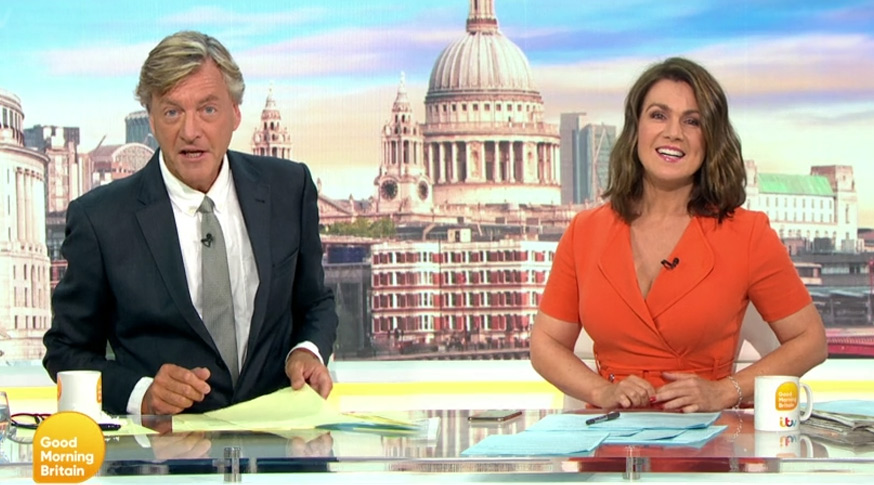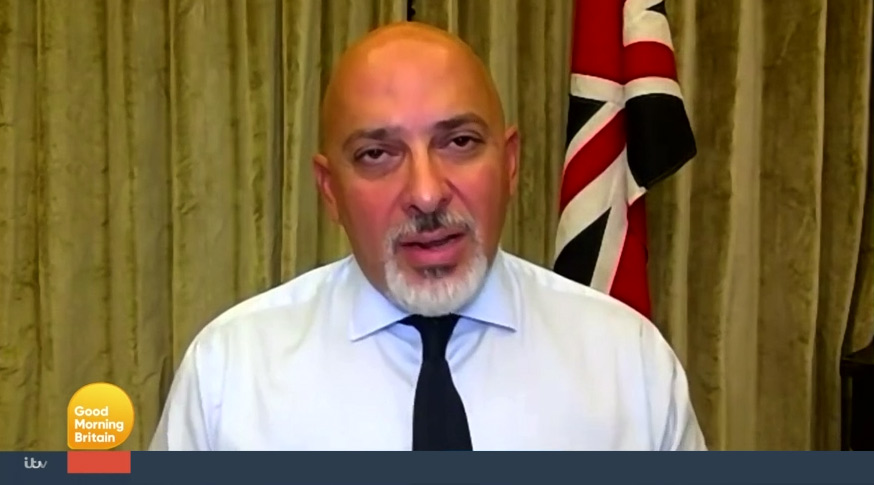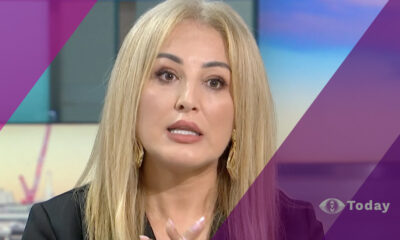12-15-year-olds are marginally better off being vaccinated on clinical reasons, according to the Chief Medical Officers.
Speaking with hosts Susanna Reid and Richard Madeley on today’s Good Morning Britain, Nadhim Zahawi MP, Vaccines Minister, discussed the recent reports from the government that 12-15-year-olds will be offered a single jab at school from next week.
Susanna highlighted that whilst the advice has come via the Chief Medical Officer for 12-15-year-olds to receive one dose, the JCVI was not recommending a mass rollout.
 “The JCVI looked at this because we got data from America and we got data from Israel who have been vaccinating healthy 12-15 year olds for a while now. They already recommended that we vaccinate the vulnerable 12-15 year olds and we were doing that already.
“The JCVI looked at this because we got data from America and we got data from Israel who have been vaccinating healthy 12-15 year olds for a while now. They already recommended that we vaccinate the vulnerable 12-15 year olds and we were doing that already.
“When they looked at healthy 12-15 year olds they said it was marginally more beneficial to get the vaccine, to not get the vaccine – not enough to recommend a universal programme because they were looking at the narrow health qualifications that they have. They recommended that the Chief Medical Officers for England, Wales, Scotland and Northern Ireland look at the wider health benefits for 12-15 year olds, like mental health benefits of being vaccinated.
“So the Chief Medical Officers consulted with the Royal College of Pediatrics, the Royal College of GP’s, the JCVI were in the room and yesterday they came back and advised us that a single dose of the Pfizer vaccine should be offered to healthy 12-15 year olds through the school age immunisation system, which has been vaccinating 12-15 year olds for many decades with other vaccines – so very well versed and equipped to do this.”
“The important thing as we have done through this vaccination deployment programme back in December last year, is to make the information available. It’s my duty to follow the Chief Medical Officer’s advice and make that information available, and say they’ve looked at this and they recommend that your child, 12-15 year olds should have one dose. The school age immunisation system will now basically do that. So the clinicians will share that information with parents through physical leaflets, through online.” – Nadhim Zahawi, speaking on GMB

Susanna Reid & Richard Madeley host GMB.
Asked if a child is safer from any risk if they get the jab compared to any risk if they don’t, Nadhim noted ‘I’ve got children, they’re slightly older and one younger than 12 (years old). By looking at the information they are marginally better off being vaccinated on clinical reasons according to the Chief Medical Officers, rightly so, when they looked at mental health and disruption to education. They think that we should recommend a universal offer, that’s what they’ve done, they’ve recommended that and we’ve accepted their recommendations, and that’s what we’ll move forward with. We shouldn’t stigmatise any parent who says, ‘You know what, maybe I don’t want my child vaccinated’ and some parents will say, ‘I do want my child vaccinated because it’s the right thing to do.”
The minister was then asked if it’s safer to have your child vaccinated once against Covid than leaving them open to catching Covid, because the risk to that child is much higher than if they get the vaccination, Nadhim commented;
“That’s right. The JCVI looked at the data from the US on a single jab and then waited, we didn’t rush ahead with this, we waited for data on their second jab. It’s really important to stress what the Chief Medical Officers did is not to look at the greater social good, but to look at the impact on the 12-15 year olds, that was really important – i.e, mental health impact, school disruptions impact and on balance they recommend that we offer the vaccine. Consent forms will go out either physically to parents on paper copy for them to sign or electronically for them to sign.”
Challenged with the dilemma of whose opinion will win if the parent says no but the child says yes to the vaccine, Nadhim said: “It’s a really important question, the school age immunisation programme has been doing this for years. We haven’t created a new system for Covid.
“On the very rare occasion – so parental consent is always sort – on the very rare occasion there is a difference of opinion and the parent says, ‘No I don’t want my child vaccinated’ and the child says, ‘No you know what, I want the vaccine’, the first thing the clinician does, not the teacher we don’t want the teachers to be in the middle of this, the clinician then brings the parent and child together to reach consent.
“If they can’t reach consent and the child still wants to be vaccinated then the clinician, if they deem that child to be competent to make that decision with all the information available to them, then the child would be able to have the vaccine.”
Good Morning Britain weekdays from 6am on ITV and ITV Hub











 “The JCVI looked at this because we got data from America and we got data from Israel who have been vaccinating healthy 12-15 year olds for a while now. They already recommended that we vaccinate the vulnerable 12-15 year olds and we were doing that already.
“The JCVI looked at this because we got data from America and we got data from Israel who have been vaccinating healthy 12-15 year olds for a while now. They already recommended that we vaccinate the vulnerable 12-15 year olds and we were doing that already.

